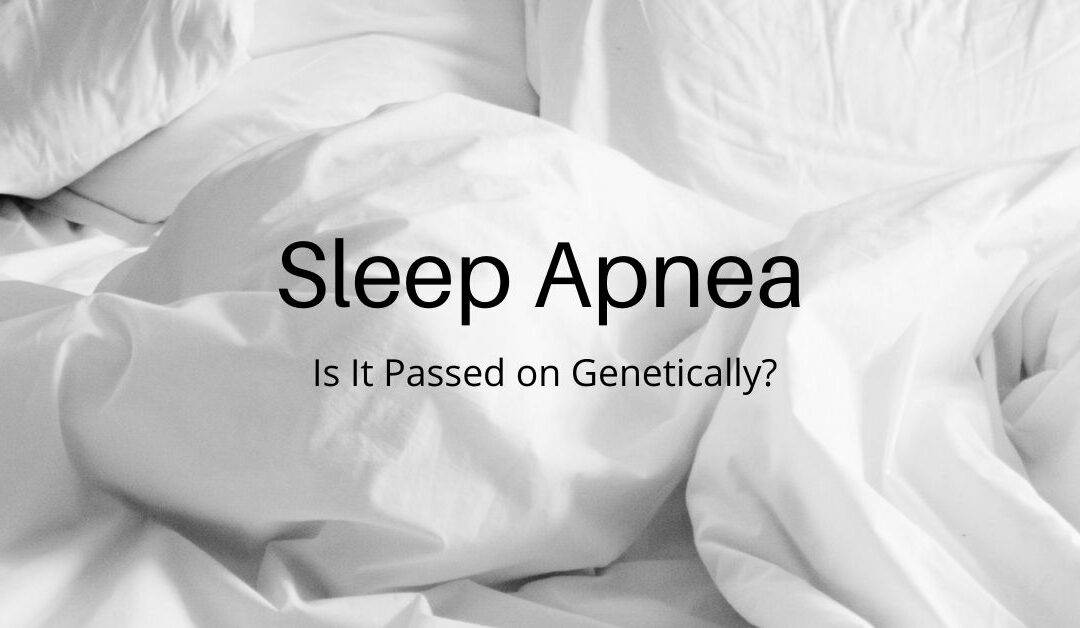Sleep apnea is a common sleep disorder that affects millions of people every night. If you are one of the many people who suffer from this condition, you may be wonder, “Is sleep apnea genetic?” Unfortunately, there is no definitive answer to this question. However, there are some things that we do know about the genetics of sleep apnea. Let’s look at the relationship between sleep apnea and genetics.
What is Sleep Apnea?
Sleep apnea is a sleep disorder that is characterized by pauses in breathing during sleep. These pauses can last for several seconds or even minutes. Additionally, people with sleep apnea often snore loudly and wake up feeling tired, even if they have slept for eight hours or more.
There are a few main types of sleep apnea:
- Obstructive sleep apnea (OSA): This is the most common type of sleep apnea. It occurs when the muscles in the back of the throat relax and collapse during sleep, blocking the airway.
- Central sleep apnea (CSA): This type of sleep apnea occurs when the brain fails to send signals to the muscles that control breathing. As a result, breathing is interrupted during sleep.
- Complex sleep apnea: When you may struggle with contributing factors from both types of sleep apnea, your diagnosis may be complex sleep apnea.
How Will I Know if I Have Sleep Apnea? What are the Symptoms?
If you think that you may have sleep apnea, it is important to talk to your doctor. They can help you determine whether or not you have the condition and the best course of treatment. There are a few different ways that doctors can diagnose sleep apnea. One way is through a sleep study. This is where patients are monitored overnight in a sleep lab. Doctors can also use questionnaires and physical exams to diagnose sleep apnea.
Some common symptoms of sleep apnea include:
- Loud snoring
- Waking up during the night gasping for air
- Waking up with a headache or dry mouth
- Difficulty concentrating during the day
- Waking up feeling tired
- Feeling irritable or moody
- Daytime sleepiness or falling asleep during the day
- Breathing pauses during sleep
- Mood disorders
- High blood pressure
- Decreased libido
What Causes Sleep Apnea?
Many wonder, “Is sleep apnea genetic,” but the exact cause of sleep apnea is unknown. However, there are a few risk factors that have been identified. These include:
- Being overweight or obese
- Having a family history of sleep apnea
- Having large tonsils or a deviated septum
- Smoking
- Drinking alcohol
Is Sleep Apnea Passed On Genetically?
Scientists are still trying to understand the connection between sleep apnea and genetics. We do know that there is some sort of genetic link, as people with a family history of sleep apnea are more likely to develop the condition themselves. However, we do not yet know exactly what causes this connection.
Some experts believe that certain genes may make people more likely to develop sleep apnea. However, more research is needed to confirm this. Scientists are also looking into whether or not certain environmental factors can play a role in the development of sleep apnea.
How is Sleep Apnea Treated?
There are a few different ways that sleep apnea can be treated. One way is through lifestyle changes. This can include losing weight, quitting smoking, and avoiding alcohol. Another way is through the use of devices that help keep the airway open during sleep. These include CPAP machines and oral appliances. In some cases, surgery may also be an option.
There is a fairly new FDA-approved device, “Inspire” that a doctor can implant in a simple procedure. When you’re ready to sleep, you simply turn the remote on to start the device. It stimulates the hyoglossus muscle to keep your airway opening as you sleep.
While we don’t yet know everything about the genetics of sleep apnea, researchers are making progress in understanding this connection. In the meantime, there are a few different ways that medical science can treat sleep apnea. If you think that you may have sleep apnea, it is important to talk to your doctor to get the treatment you need.
Are There Any Risks Associated with Sleep Apnea?
If left untreated, sleep apnea can lead to a number of serious health problems. These include high blood pressure, heart disease, stroke, and even death. That is why it is so important to find solutions if you think that you may have sleep apnea.
Treating sleep apnea can help reduce the risks associated with this condition. If you are struggling to treat your sleep apnea on your own, there are a number of resources that can help you. These include support groups and online forums. There are also a number of treatments available that can help you get the rest that you need.
Don’t suffer from sleep apnea any longer. Talk to your doctor about diagnosis and treatment options today.
We Can Help
Sleep apnea is a serious condition that can have harmful consequences on your health if left untreated. If you’re concerned about your sleep or think you might be suffering from sleep apnea, schedule an appointment with us today. Our team of ENT sleep specialists at Enticare can help you get the good night’s sleep you need and deserve. We work with you to find the best treatment for your individual needs. Give us a call or schedule online today.
Sources:

